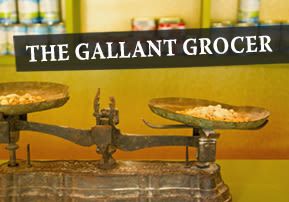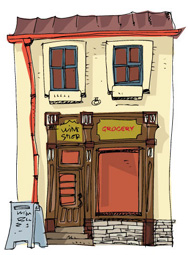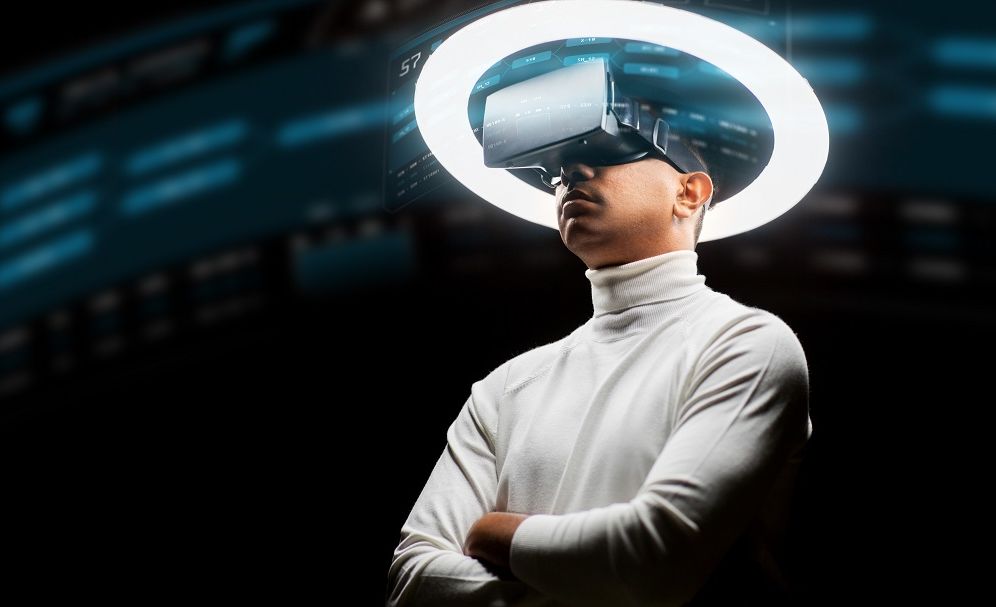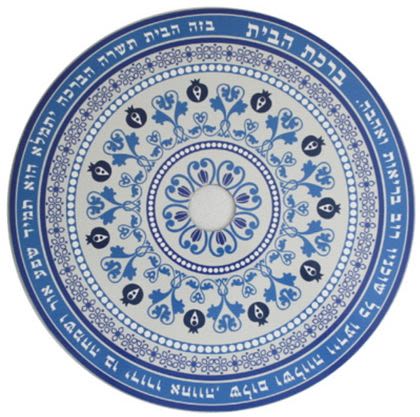
Noach: The Gallant Grocer
The screaming woke us up in the middle of the night; Shapiro's grocery store down the street – our store's fierce competitor - was going up in flames…

I'm going to take you down my memory lane to inner-city Washington, DC of the early 1950's, when I was about five years old. Yet, the memories are still vivid – especially, the one of my father, of blessed memory.
Here's some background: Many of the Polish, Russian and Ukrainian Jewish immigrants who escaped the pogroms of the late 19th and early 20th century Europe came to the USA and Canada with a desire to start a new life and escape the pain of persecution, which they discarded together with their Judaism. We can't judge such people, for we didn't experience what they did. Nevertheless, their children, who were born already in the "new country", grew up with little knowledge of Torah and Judaism. One such individual was my father.
Dad had a fierce Jewish identity and pride, but he was far away from observant Judaism. Born in 1921 in Winnipeg, Manitoba, he grew up a tough kid on the streets where the Jewish kids always had to defend themselves the local Jew-haters. Dad joined the RCAF in 1939 and became a bomber pilot. After the war, he wanted to be a commercial pilot but his young wife – my mother, who left Poland in 1938 at the age of 12 and settled in Washington, DC – would have nothing to do with a fly-boy husband. She grounded him as a condition to their getting married. As such, Pop came to Washington, DC and opened a small grocery store in a slum neighborhood in Southeast DC, just twelve blocks from the Capitol. That's where I was  born in 1949, in the tiny apartment in the upstairs floor of the grocery store.
born in 1949, in the tiny apartment in the upstairs floor of the grocery store.
In inner-city Washington, DC of the early 1950's, the local population of Afro-Americans was spotted with white Jewish merchants on the street corners, proprietors of grocery stores and liquor stores for the most part. Since the population was so dense, if you were the only grocer on the block, you were assured of a more than adequate living. But since neighborhood groceries were a popular way of making a living back then, second grocery stores began to appear on many blocks; our block of 12th Street and Independence Avenue was no exception.
The folks in the neighborhood loved my Pop. He respected every human being and dealt fairly with everyone. What's more, he'd wear a white shirt and a black bowtie as if he were a maître-D serving prestigious clientele, despite the fact that he had more than his share of drunks, addicts and shoplifters frequenting the store. Most of the customers barely eked out livings as day-laborers and domestics, but Dad treated them with utmost dignity.
Down the block on 12th Street, there was a second grocery store owned by a man who we'll call Shapiro. Shapiro tried everything to lure Pop's customers into his store. I never heard Pop say a detrimental word about him, but he always seemed to be sniffing around our place to see what was featured in the window, who was coming in the store and who was going out. Yet, whenever Pop would see him, he'd greet him cordially. Pop wasn't religious, but I've yet to meet a more charitable and believing individual than him. He was sure that no one could take a morsel of bread out of his mouth, so he never worried about competitors. Plus, no merchant in the area treated customers like Pop did. I'll never forget one husbandless Aunt Jemima-looking big mama who had come to the big city from Georgia with her three young-ins say, "Ain't nobody like Mister Jack – he got respect fo' folks." My Pop didn't have a lulav on Succoth but I never saw him refuse an outstretched hand, no matter what the person's color or religion was.
One night, we awoke to a ruckus. There was yelling down on the street, "Fire, fire!" Someone shouted, "Shapiro's grocery is up in flames!" Pop flew into his clothes and in two minutes was running down 12th Street in the direction of Shapiro's grocery. The Shapiro family, who like us lived on the upstairs floor of their grocery store, was out on the sidewalk in their pajamas. Mr. Shapiro was crying, "My business, my home!" Just then, the firemen arrived…
Pop yelled, "There's no time to cry – let's save what we can!" Risking the flames, the first thing he did was to salvage Shapiro's heavy old-time cash register and bring it outside. Then he saved a scale. The firemen shouted at him to get the heck out of that inferno…
Within 15 minutes, Shapiro's grocery was a swamp of mud and charcoal. You'd think that a person with normal emotions would secretly delight that his competitor was out of business; not my Pop. He personally helped Shapiro get back on his feet, remodel and restock. The newly remodeled store was twice as nice as it was before the fire. Pop couldn't stand to see a family lose its livelihood.
"…I have seen you to be righteous before Me in this generation." (Genesis 7:1). Some of our sages fault Noah that if he were in Abraham's generation, he'd be considered a nothing. Yet, Noah was a beacon of righteousness in a generation of wickedness. That's why he was the ancestor of such righteous offspring like Abraham, Isaac and Jacob.
My dad was part of a generation that worked day on night focusing on the dollar and not on their relationship with Hashem, Who few even knew about. With Pop's emuna, despite the fact that tefillin and Shabbat were far from his lexicon, and with his concern for his fellow man, he too was righteous in his generation. How many people would risk their lives to help a competitor? That's the type of individual he was. Pop was a walking example of deep inner faith, charity and loving-kindness. We miss you, Pop.










10/31/2016
a wonderful light
10/31/2016